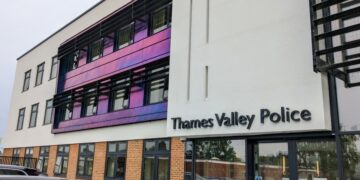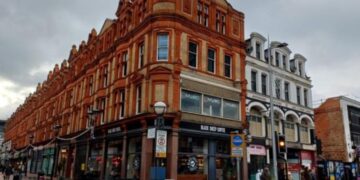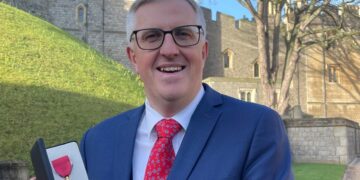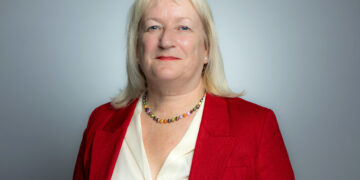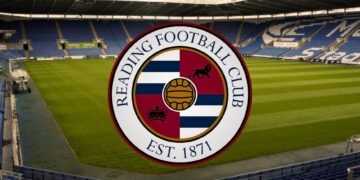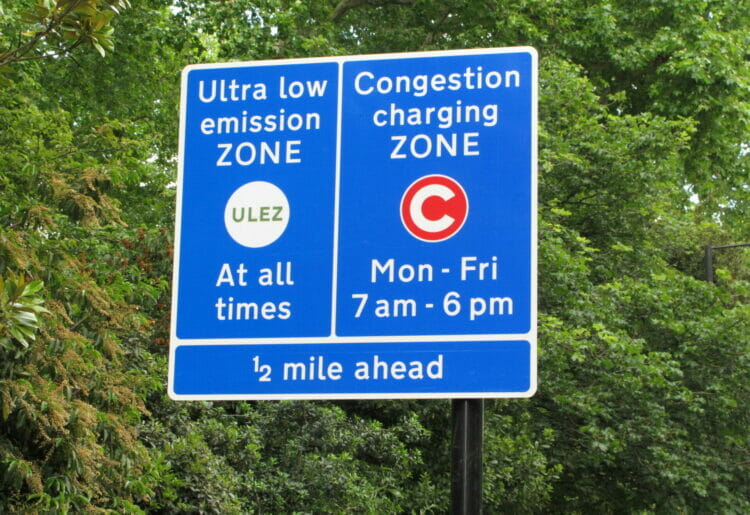A CONGESTION charge could be introduced in Reading, despite the plan being vetoed in 2021.
If set up in a similar way to London, motorists would pay to drive within a certain area, such as within the IDR in Reading’s case.
In the capital, the fee is £15 between the hours of 7am and 6pm on weekdays and noon and 6pm at weekends and bank holidays. The only exception is Twixmas – the period between Christmas Day and New Year’s Day.
Cllr Tony Page told BBC Radio Berkshire’s breakfast DJ that it was a plan being considered as ‘up to a quarter of the traffic on the IDR’ was just passing through.
By introducing the charge, it would lead to air quality improvements, he argued.
The details for consultation will be published in a June in a draft transport strategy, so no official documentation is available.
“There’s a lot of traffic that uses roads in Reading that has no business in Reading, it is simply looking to use the town as a shortcut,” he said. “That is contributing a lot of pollution.”
Cllr Rob White, the leader of the Green Party, Reading’s main opposition party, said it was hard to give an opinion on a scheme that has yet to be published.
“Reading does have a massive air quality problem,” he said. “We have massive congestion problems in east Reading, while the council’s really struggling to get the traffic lights working, let alone implement a congestion charge.
“I’m a bit concerned about the council’s ability to deliver such as scheme, but action is needed. Reading is gridlocked for far too much of the day and that’s causing pollution, it’s worsening climate change and it’s killing people.”
Cllr White felt that exploring a congestion charge was a reasonable thing to look into, “but we need decent alternatives to the car if you’re just charging people through the nose”.
He called on the council to improve the public transport network, have better local facilities so people didn’t need to travel as far in the first place, and the government should subsidise electric cars.
“Just charging people through the nose without those alternatives sounds unfair to me, but we’re going to need to see what the council puts forward,” he said.
Reading Conservative leader Cllr Clarence Mitchell said he recognised the problem congestion causes in Reading, and wanted a solution that helped improved the experience for drivers coming to the town to support local business.
“We are against a congestion charge in itself, we think there are better ways of tackling this,” he told BBC Radio Berkshire listeners.
He also disputed Cllr Page’s assertion that the A33 was being used as a rat run, and criticised the council’s active travel policy for not being joined up – such as the cycle routes on Sidmouth Street.
Instead, Conservatives wanted to see improvements to the town’s bus network, more car clubs, and better active travel routes for alternative forms of transport.
He also wanted to see a third bridge introduced for Reading.
“We need it, it’s been talked about for around 100 years,” he said. “It may well not happen in the immediate future, that is the relief road that is needed for the town.
“Penalising drivers who come through the town in principle is a workable idea, but without the detail, we are not convinced of the merits of that.”
In its manifesto for the recent local elections, the Reading Liberal Democrats wanted to introduce a ULEZ (Ultra Low Emissions Zone) across the town.
This is different to a congestion charge as it would ask motorists to pay a fee based on the emissions from their car engines.
In London, this is £12.50 per day, and is on top of the congestion charge.
Reading’s previous congestion charge plan was axed two years ago after an investigation found it would have limited environmental and financial benefits, partly because it was being considered during the lockdown phase of the covid pandemic.
Options in that plan included charging employers who provided parking in the workplace.
At the time, the Road Haulage Association came out against the plans as “adding extra miles to truck journeys would increase costs and make local firms who rely on these routes less competitive”.
Cllr Page was making his recent comments before he became mayor of Reading, which is a politically neutral role.


